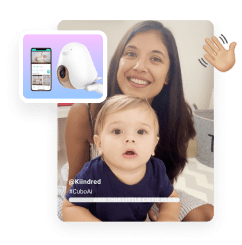False Negative Pregnancy Test: Why Did it Happen?
Weeing on a pregnancy test is one hell of a ride. Waiting those ten minutes for the results can feel like a lifetime — and whatever you’re hoping for when you look at that pregnancy test, it can make your heart skip a beat. Depending on when you have taken the test, it’s common to return a false negative pregnancy test. The main reason this happens is usually that you’ve taken the test too early in your. Indeed you may have a late period, but a negative pregnancy test result can have you left scratching your head about where this leaves you. Keep reading as we break down everything you need to know about false negative pregnancy tests.
Is it possible to be pregnant and have a negative pregnancy test?
Getting a negative result doesn’t necessarily mean you are not pregnant; it just means that there wasn’t enough of the HCG hormone in your urine to detect it at the point of testing. It’s often a good idea to wait a couple of days and try again.
On average, it takes between 7–12 days after implantation for HCG to be detectable in your urine. Generally speaking, a positive pregnancy test will be fairly accurate, but it’s always a good idea to follow up with your GP to confirm the results.
Why did you get a false negative pregnancy test?
You can still be pregnant and return a false negative pregnancy test. This can happen because:
- You’ve taken the pregnancy test too early. The earlier you take the test after a missed period, the harder it’s going to be to detect the pregnancy HCG hormone (Human chorionic gonadotropin, which is produced by the placenta). The most accurate time to take a pregnancy test is one week after your missed period. For the most accurate result, ask your GP for a blood test.
- You’ve checked the pregnancy test too soon. Follow the instructions for the exact amount of time you need to wait and then set a timer.
- Your urine is diluted. The best time of day to take a home pregnancy test is first thing in the morning when your urine will be the most concentrated.
Get tailored content based on your week of pregnancy
By signing up, you agree to receiving our Newsletters. Cancel anytime.



Negative pregnancy test but no period?
If you continue to return a negative pregnancy test but you’ve had a missed period, it is best to see your doctor immediately for further investigation.
It is common for some women to just “know” they are pregnant before they have taken a home pregnancy test. This is usually down to a few common symptoms that occur in the early days, such as:
- You’ve had a missed period
- You have cramping
- Your breasts are sore or tender
- You’re tired
- You’re nauseous and can’t keep food down
Or perhaps it’s just good old female intuition. But if you’re showing the signs of being pregnant, you had sex without contraception, or your period is late — and yet you’re still getting false negative pregnancy tests, then it might be time to see a doctor.
Your doctor will assess your situation and may suggest blood tests to determine whether you are pregnant or not.
There could be several reasons you’ve got a missed period, so your doctor will help determine the cause.
Related Articles
Could medicines affect the pregnancy test result?
Some fertility medication, or other medicine containing the HCG hormone might be able to impact the urine sample in home pregnancy tests. But most medicines, including antibiotics and birth control pills, don’t affect the accuracy or create false negative test results.
Can you get a faulty or expired pregnancy test?
Pregnancy tests do have expiry dates, so if you’ve got an expired test, that could make it inaccurate. If home pregnancy tests can no longer read HCG levels, even if it’s present, it’s more likely you’d get false negative. The expiry date should be on the individual foil wrapping. When it comes to having a faulty test, there’s no ruling it out. So if you’re in doubt, head to the doctor and get a blood test, or have them
Can you have a false positive test?
False positive tests can happen if you had a pregnancy loss soon after the fertilised egg attached to the uterine lining. As mentioned earlier, some fertility medicine that impacts your HCG levels might also lead to inaccurate positive test results.
Is there a best time of day to take a pregnancy test?
Home pregnancy tests have come a long way in recent years, but it is recommended for the most accurate result it is best to take the pregnancy test in the morning — especially if you haven’t yet missed your period or are only a few days late.
You can take a pregnancy test later in the day, but your chances of getting a false negative are higher.
How accurate are pregnancy tests?
Pregnancy tests these days boast around 99% accurate results. However, it’s important to remember that this comes down to a number of the factors outlined above as well as how closely you follow the directions on the packet (so read the instructions carefully).
If you’re certain you’re pregnant but still getting a negative pregnancy test result, it’s best to put the pregnancy tests away and speak to your doctor as soon as possible. False negative tests can definitely happen, so save your money (and wee) and speak to a professional who’ll be able to help you. One thing’s for sure, there’s nothing straightforward about women’s health.

Kiindred Follow +
Brought to you by the Kiindred Editors. Our team are committed to researching and writing on all the things we know you will want to know about, at each stage of your pregnancy and parenthood journey.




